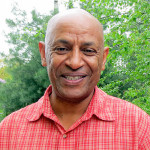CONFRONTING THE FUTURE OF ADDIS ABABA’S GROWTH: A CELLULAR AUTOMATA APPROACH

Studies of land-use change outside sub-Saharan Africa have demonstrated the importance of urbanization patterns in structuring social and ecological processes. Yet, no significant studies have examined urbanization in sub-Saharan Africa, where city growth is proceeding at an extraordinarily rapid pace under a set of unique circumstances, including the decoupling of urbanization and economic growth, weak urban management structures, and under-capacitated local and national states. Consequently, sub-Saharan African cities are characterized by lack of high-quality urban services (e.g., public transport, clean water supply, sewage treatment, gas/electricity, employment) and by the absence of effective zoning regulations and enforcement, which together exacerbate the degradation of the ecosystem services cities need. A good example of such growth is Addis Ababa. The talk focuses on one aspect of a larger research project I have began in Addis Ababa. Specifically, I will focus on the application of a cellular automata approach to evaluate alternative growth scenarios for the city.



